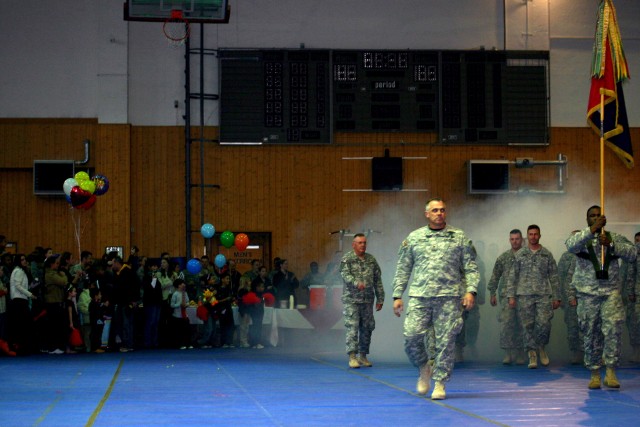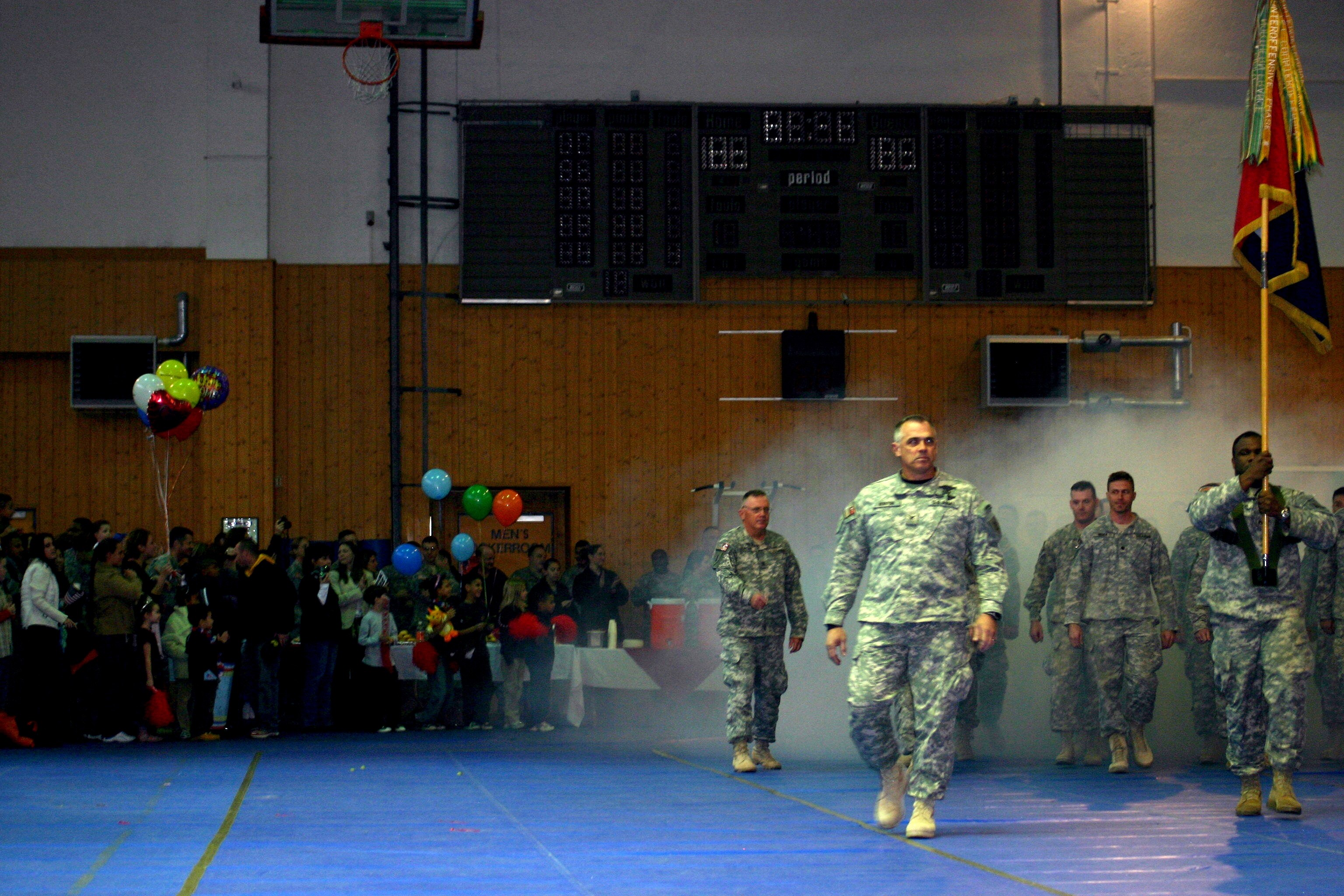
SCHWEINFURT, Germany (Dec. 4, 2007) -- Shortly before leading his staff and about 200 other Soldiers of the 2nd "Dagger" Brigade Combat Team, 1st Infantry Division into the Finney Fitness Center here for their welcome home ceremony Nov. 20, Col. J.B. Burton reflected with reporters on the U.S. Army Europe brigade's 15-month mission to Operation Iraqi Freedom.
"We're coming home. Fifteen months of hard fighting. Fifteen months of positive and measurable change across everywhere that a 'Dagger' Brigade Combat Team formation was located," Burton said, detailing a few of the accomplishments of his subordinate battalions' task forces.
Task Force 1st Battalion, 77th Armor. Ramadi. "The Anbar Awakening" that garnered worldwide attention. Task Force 1st Battalion, 26th Infantry.
"They went into an area of Baghdad that hadn't seen thick presence of coalition forces in maybe about a year. They went into a very difficult area of operations," and succeeded at establishing stability on dangerously violent streets, he said.
West Rashid and Task Force 1st Battalion, 18th Infantry. The 2nd Brigade Combat Team.
"We were effective in stopping Shia extremist expansion out of the northeast of our area of responsibility," Burton said.
While the 9th Engineer Battalion and 1st Battalion, 7th Field Artillery were detached from the 'Dagger' Brigade in Iraq, Burton maintained a watchful eye on them and their missions as his brigade was supported by a vast support structure from other units.
"We ended up with five task forces from five brigade combat teams from five different installations in the continental United States, all working under the 'Dagger' Brigade Combat Team," he said.
"You're going in with formations you just didn't know," he said. "But the integration went very easy."
One reason.
"A tremendous, tremendously capable brigade combat team was formed because we had fantastic American Soldiers that were grounded in the United States Army values," he said.
As the deployment wound down to a close, Burton says he pondered the difference that his Soldiers made in all the corners of Iraq where they "put their boots down."
"We leave with a sense of accomplishment, but one that is extremely fragile. There's got to be some very difficult decisions on the part of the government of Iraq, and we know that," he said, noting that the integration of Iraqis into the nation's political and security solutions will further advance the improvements made by "Dagger" Brigade Soldiers.
The colonel said that as much as his Soldiers have done in Iraq, they're glad to be home.
"This great community in Schweinfurt, this little community at the end of the railroad tracks, I think, is bustling, ready for Soldiers, their Families and friends to be reunited after what I personally believe has been a decisive time in Operation Iraqi Freedom. These great Soldiers have made a difference," he said.
"They're ready for a well-deserved break. You can see it in their eyeballs right now," Burton said before leading his Soldiers back to their Families on the other side of Conn Barracks.

Social Sharing